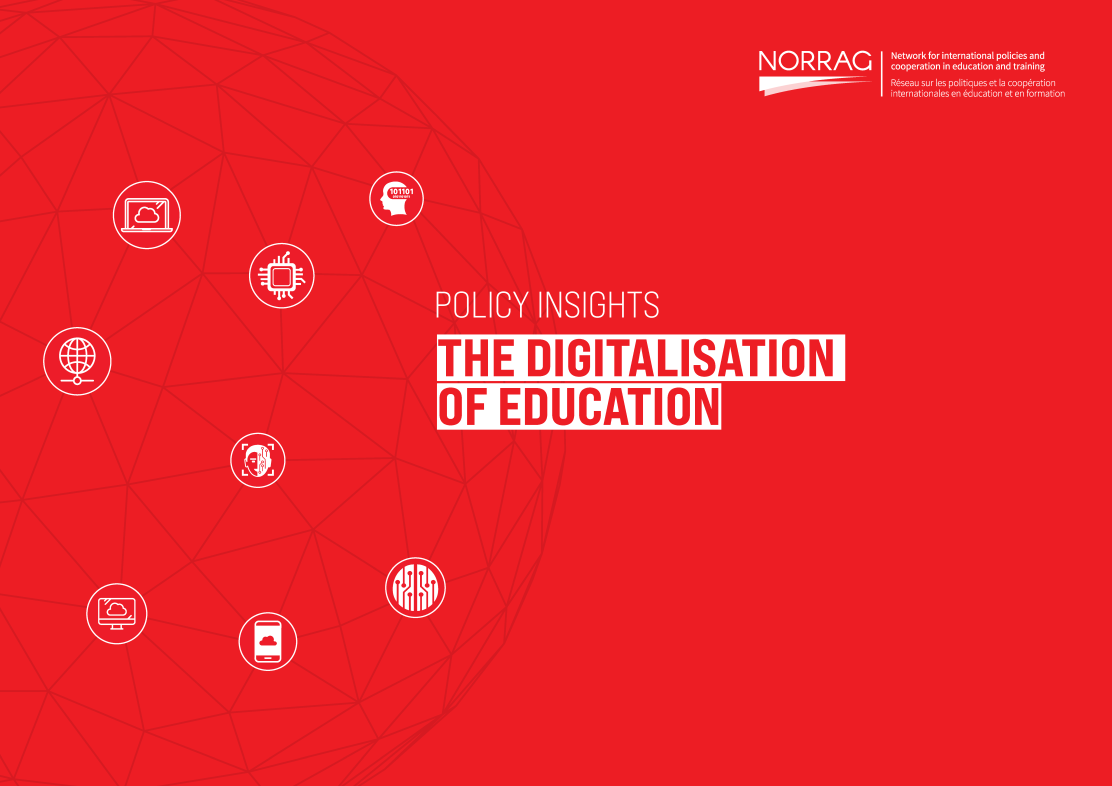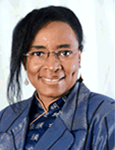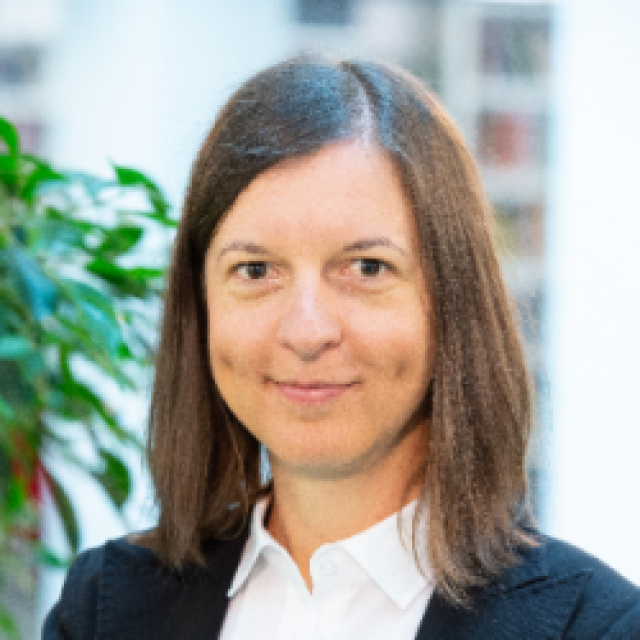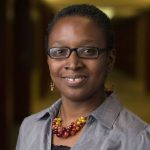Events Highlights: The digitalisation of education and its impact on the right to education
NORRAG and the United Nations Special Rapporteur on the Right to Education hosted by the United Nations High Commissioner for Human Rights (OHCHR) organised an online side event to the Human Rights Council on 24 June 2022 from 13:00-14:30 (CEST/Geneva). This event explored how digitalisation is transforming education around the world and celebrated the Special Rapporteur’s 2022 report on the impact of the digitalisation of education on the right to education. The webinar was conducted in English and French, with simultaneous interpretation.
To coincide with the event, NORRAG has also published a multi-disciplinary collection, “Policy Insights: The Digitalisation of Education,” which shares learning from this partnership with the UN Special Rapporteur, providing profound but digestible insights for education policy and practice.
Cliquez ici pour voir la vidéo en français
H.E. Mr. Rui Macieira, Permanent Representative of Portugal to the United Nations Office and other International Organizations in Geneva, welcomed the audience. Macieira recalled that the right to education is a human right, rooted in the Universal Declaration of Human Rights, and yet according to UNESCO, 258 million children remain out of school worldwide. Digital education has the potential to either enhance or jeopardize this right. The world is undergoing an inevitable digital transformation, which Macieira urged needs to be shaped by human rights principles. Digital education must not increase inequalities or lead to further violations of human rights. His Excellency shared how Portugal intends to address concerns about digital education under its National Action Plan for Digital Transition 2020.
Dr. Koumbou Boly Barry, UN Special Rapporteur on the Right to Education, began by underlining the expectation that digital tools will be able to solve all problems in education; a position, she argued, that is inherently wrong. Digital tools are essential, but they are only tools. The digitalisation of education, as NORRAG Executive Director Moira V. Faul also emphasized earlier in the event, should be approached with a primary focus on education, as opposed to the digital aspect.
Dr. Boly Barry also shared highlights from her 2022 report on the impact of the digitalisation of education on the right to education. Digitalisation is already very present in schools and education, but there is concern over the potential for digital tools to increase existing inequalities. As privileged societies will be able to take advantage of digital tools in the future, less privileged societies may be left behind. Governments and policy makers should focus on digital development in education for those who already lack access and opportunities. Dr. Boly Barry also expressed concerns that increased digitalisation of education may result in data exploitation and privacy violations, as well as the standardisation of education, globally.
To support education for all, Dr Boly Barry stressed that the digitalisation of education should ultimately be learner- and teacher-focused, encourage creativity and diversity, and focus on improving access to education for the world’s most marginalized populations first.
Ms. Hye Jung Han, Researcher and Advocate, Children’s Rights Division, Human Rights Watch, shared key insights on online learning and children’s privacy for Human Rights Watch’s 2022 Global Report “How Dare They Peep into My Private Life?” During the COVID-19 pandemic, education moved online in many countries. Governments recommended Education Technology (EdTech) products to teachers and learners to continue schooling at home, often without considering what data these products were gathering or how it was being used. After examining 163 digital products (digital applications, etc.) in 49 countries, Human Rights Watch found that every government examined had recommended EdTech products that violated children’s human rights, except for Morocco. For example, some of the products recommended by governments were able to gather data that could pinpoint the exact location of a child to within 5 meters. These extremely sensitive data may have then been sold by EdTech companies to advertising technology (AdTech) companies to target children. Han described this technology as surveillance technology. She argued that, under these conditions, there was no meaningful way for children to access their right to education without having their human rights violated, and recommended that governments pass data protection laws specific to children.
Dr. Neil Selwyn, Distinguished Professor in the Faculty of Education, Monash University, described four ways in which digital technologies are increasing datafication in education. EdTech companies are constantly collecting user data in the background, called trace data. These data are routinely used in software development but also routinely sold to commercial data brokers and third parties involved in the data economy, part of what Shoshana Zuboff has termed “surveillance capitalism.” Selwyn also shared how datafication in education is increasing through learning analytics and education data mining products, small-scale data (such as polls and quizzes used by teachers in classrooms), as well as standardized testing and metrics that rely on data from digital technologies (for example, the Organization for Economic Cooperation and Development’s (OECD) Program for International Student Assessment (PISA)).
Selwyn was concerned that the vast majority of data in education only remains available to a service provider, which means schools and teachers are limited in their capacity to use data to improve education. At the same time, he highlighted that data may undermine the professional expertise of teachers, as more decision making in education is data-based. Data-based surveillance of teacher performance was also a cause for concern. Selwyn reminded the audience that important aspects of teaching and learning are difficult to quantify and cannot be captured by data, as well.
Selwyn recommended that governments play a more active role in oversight of how digital technologies are implemented in schools. National, or even global, standards for education data interoperability will allow easier exchange and reuse of data.
Dr. Janet Kwami, Associate Professor in the Department of Communication Studies at Furman University, focused on gender and digital inequities, providing an overview from the field of ICT in relation to diversity, inclusion and education. She drew out key principles for states and other stakeholders, including the need to take an intersectional approach that considers gender, ethnicity, religion, sexuality, rural versus urban location, as well as many other factors, that may affect how students and teachers experience digitisation, and therefore the many ways in which technology may widen rather than reduce digital inequalities. She urged us to consider the bias that is inherent in the technology and pay attention to the lack of diversity in the processes and systems of education technology. She asked: who is speaking for whom, who is making decisions for whom, and who is included when?
Dr. Kwami pointed out that the literature is shifting away from the idea of an absolute “digital divide” and highlighting different types of digital divides. Access is one aspect of digital inequality, and this includes access to school as well as to technologies. Usage is another aspect, which includes capabilities. Another is the tangible outcomes, or benefits, where we realise that digital education often replicates what is happening offline. Finally, Dr. Kwami drew our attention to the dynamics that impact inclusion, such as who shapes the infrastructure of digitalisation, and what kinds of cultural content is available. She closed by urging policy makers to put in place systems that eliminate barriers and allow for equal participation, taking in to account cost, infrastructure, internet access, literacies, and humane and ethical technology.
Dr Janja Komljenovic, Director of the Centre for Higher Education Research and Evaluation, Lancaster University, explained how scholars conceptualise privatisation in education. With the rapid digitalisation of education, new dynamics have emerged. Private providers are expanding into education, and market forces have been introduced into public education systems, where metrics such as key performance indicators aim to improve education outcomes. A new market in tech-based lifelong learning has developed. Komljenovic argued that investment in EdTech is a way of capitalizing education. As it promises high yields, EdTech is a sector witnessing rapidly growing investment. In 2010, the sector started with 500 million USD of venture capital and reached 20 billion USD in 2021 alone.
Komljenovic asserted that current privatisation processes in education should be understood as assetisation. Assetisation is a distinct way of generating value through proprietary digital platforms. Platforms are assets: a resource that generates value as a result of ownership and control rights. For example, as digital users, we do not get to own or change anything about a platform. However, a platform owner can decide who gets access to their products and under what conditions, make any changes to products, or sell a platform and any data part of it. Other examples of assets include user data, algorithms, university or platform grants.
During the Q&A session, key themes that were raised include inequalities, digital safety and harm, and the quality and inclusivity of digital technologies. Former World Bank Country Director for Caribbean countries, Ms. Tahseen Sayed, asked a question about inequalities resulting from the digitalisation of education; a question that is addressed in the new NORRAG Policy Insights publication (see below).
Ignasi Grau, General Director of OIDEL, spoke to the lack of quality and inclusivity of digital technologies. Digitalisation must be approached from a humanistic and human rights lens, he argued. At the same time, while digital technologies are essential in education, it is important to recall that children learn best from real-world exposure in the classroom.
 Launch of Policy Insights: The digitalisation of education
Launch of Policy Insights: The digitalisation of education
NORRAG is delighted to launch a new publication, Policy Insights: The digitalisation of education, now available to read online. The collection shares innovative and critical perspectives on the digitalisation of education from experts in a wide range of disciplines and draws out learning for international education policy makers and practitioners.
The multi-disciplinary publication brings together 24 contributions presented in digestible format across six themes, including datafication and surveillance, diversity and “digital divides”, privatisation, digital citizenship, and the health impacts of the digitalisation of education.
The collection resulted from our partnership with the United Nations Special Rapporteur on the Right to Education. Over 20 experts who took part in a Policy Dialogue expert consultation process have contributed to the publication, which amplifies under-represented expertise about the digitalisation of education, including from the global South.
Read this introduction to the publication by Moira V. Faul (Executive Director, NORRAG) and Anna Numa Hopkins (Policy Engagement Lead, NORRAG).
NORRAG has also opened a call for contributions for blogs from education researchers, policy makers and practitioners to respond to the publication. For more information and to contribute, please contact Anna Numa Hopkins at anna.hopkins@graduateinstitute.ch.
Speakers and Discussants
 H.E. Mr. Rui Macieira, Permanent Representative of Portugal to the United Nations Office and other international organizations in Geneva
H.E. Mr. Rui Macieira, Permanent Representative of Portugal to the United Nations Office and other international organizations in Geneva
Prior to his appointment to Geneva, Rui Macieira was the Ambassador of Portugal to Denmark and Lithuania from 2014 to 2018. He served as Director General for Foreign Policy from 2012 to 2014; Director General for European Affairs from 2011 to 2012; Deputy Director General for Foreign Policy from 2008 to 2011; and Deputy Director General for European Affairs from 2006 to 2008. Rui Macieira was the Deputy Permanent Representative of Portugal to the United Nations in New York from 2002 to 2006. Other posts he has held since joining the Ministry for Foreign Affairs in March 1984 include Deputy Diplomatic Adviser to the Prime Minister from 1995 to 1997; Deputy Head of Mission at the Portuguese Embassy in Rabat in 1995; and First Secretary at the Portuguese Embassy in Paris from 1990 to 1995. Rui Macieira has a degree in Economics from the Portuguese Catholic University, in Lisbon (1982).

Dr. Koumbou Boly Barry, UN Special Rapporteur on the Right to Education
Originally from Burkina Faso, Dr. Koumbou Boly Barry took office on 1st August 2016 following her appointment at the 32nd session of the Human Rights Council. Dr. Boly Barry holds a PhD in Economic History from Cheikh Anta Diop University in Senegal. She is the former Minister of Education and Literacy of Burkina Faso, and has consulted widely for various governments and international institutions on the right to education. Dr. Boly Barry has been an advocate on gender issues in education. She also has ample knowledge and experience in training and research, as a visiting professor at University of Nottingham, United Kingdom; University of Louvain La Neuve, Belgium; and as a lecturer at Ouagadougou University, Burkina Faso; Vitoria University, Brazil; and Fribourg University, Switzerland.
 Hye Jung Han, Researcher and Advocate, Children’s Rights Division, Human Rights Watch
Hye Jung Han, Researcher and Advocate, Children’s Rights Division, Human Rights Watch
Hye Jung Han is a researcher and advocate in the Children’s Rights Division, where she specializes on children’s rights and technology. Before joining Human Rights Watch, she worked at UNICEF, where she advised teams across the world on the ethical use of data and technologies to deliver assistance to the world’s most vulnerable children. She has also worked to deliver humanitarian aid to children and families with UNICEF South Sudan and with the United Nations Peacekeeping Mission in South Sudan, and was seconded to the World Food Progamme to support cross-border negotiations. These experiences have given her a keen understanding of the realities of how technologies can reach, or fail to reach, the lives and rights of children.
 Dr Janja Komljenovic, Director of the Centre for Higher Education Research and Evaluation, Lancaster University
Dr Janja Komljenovic, Director of the Centre for Higher Education Research and Evaluation, Lancaster University
Janja Komljenovic is a Senior Lecturer at Lancaster University. Her research focuses on higher education markets and digital economy. Janja leads an ESRC-funded project investigating value in digitalised higher education. She has published more than 20 journal articles and book chapters, has been invited to speak at more than 30 international events, and acts as a consultant on policy projects.
 Janet Kwami, Associate Professor of Communication Studies at Furman University
Janet Kwami, Associate Professor of Communication Studies at Furman University
Janet Kwami is an Associate Professor in the Department of Communication Studies at Furman University, USA. She has over 20 years of experience in higher education and is a leading expert in gender, digital technologies, and socio-economic development in the Global South. Her current research explores social inequalities and the appropriation, use, and impacts of digital technologies in marginalised communities.
 Neil Selwyn, Distinguished Professor in the Faculty of Education, Monash University
Neil Selwyn, Distinguished Professor in the Faculty of Education, Monash University
Neil Selwn is a research professor from Monash University (Australia), having previously worked in the UCL Institute of Education (UK). He has been researching educational use of digital technologies over the past 25 years. Dr. Selwyn is recognised as a leading international researcher in the area of digital education – with particular expertise in the constraints and problems faced when technology-based education is implemented.
Organising partners
The Office of the Special Rapporteur on the Right to Education is hosted by OHCHR, the leading UN entity on Human Rights. The OHCHR represent the world’s commitment to the promotion and protection of the full range of human rights and freedoms set out in the Universal Declaration of Human Rights. Learn more
Click here to become a NORRAG Member and join a vibrant community of more than 5,000 experts in education.

